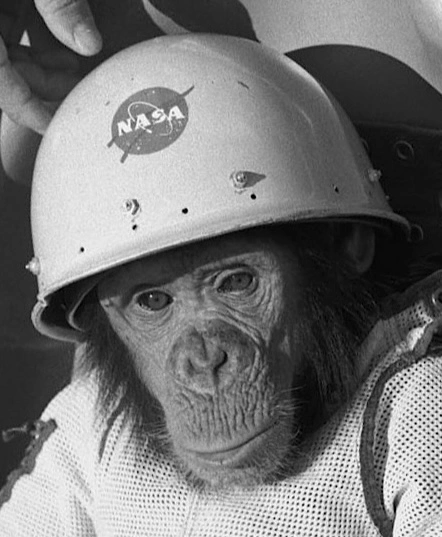Later that evening at the local tavern.
“So then when it fails for the third time, he drinks a cup of acid, tips his hat to the crowd, and then collapses.”
“Haha! That’s gold!”
The tavern falls silent.
There are a couple great video essays by Bobby Broccoli on YouTube where they dive into the history of people who faked human cloning and discovering a new element
Link for those interested:
Amazing video. Thanks for sharing.
I love bobby broccoli. For me, one of the very few instant-click long format channels.
The video on Jan Hendrick Schön was what I thought of on opening the thread
See, replication isn’t a problem if your entire field is vibes-based. A lot of economics papers I come across are like that (so much so that I am close to writing off the entire decipline as unscientific). The diff in the level of rigour you would see in e.g. particle physics versus in economics is baffling.
It used to be psychology as well but I am noticing they are more than aware of their replication crisis lately. Whereas economics feels pseudoscience with a maths clothing.
The problem is that a lot out economics relies on “models” that estimate the price of milk by assuming a frictionless cow on an infinite plane. There’s a distinct lack of attempts to actually test the models against reality, or simply study reality itself (the reason likely being that when people do study reality instead of models, the progressive economists most often turn out to be right)
Economics is tarot card reading for right wing pseudointellectuals, just like The Stock Market being the same as astrological horoscopes for the same crowd
Not all of it. But that’s what a lot of the mainstream has become.
For a better analysis than I can give, check out Unlearning Economics on YouTube. He’s an econ PhD doing a lot of excellent work dissecting the problems with the field as a whole.
where’s that SMBC comic that says economic models suck so bad because they’re created by the sort of person who gets a business degree
That’s pretty much all of them
The real issue is that anyone can come up with an economic model, but politicians and public figures get to pick and choose the one that fits their beliefs most closely. The model can be crap and barely hold up beyond an ELIF narrative about why it’s true, and people will base their careers around believing it
I think there are good economic models out there, it’s just the convenient ones that are spread… Ones that don’t generally hold up against actual observation
The problem is that a lot out economics relies on “models” that estimate the price of milk by assuming a frictionless cow on an infinite plane
Reminds me of a great sarcastic comment I heard in a “Well, there’s your problem” podcast. It was along the lines of “Turns out that, if gas was free, contrary to what economists would have you believe, people wouldn’t be consuming infinite amounts of it”
Also the fact that the economy is managed can mean things aren’t always testable. If you think there’s going to be a recession based on models and you prevent that by using policy, did you really prevent the recession or was it never going to happen?
Economists are just maths/stats nerds that like gambling, don’t bother to cmv.
I see the same issues also in computer science especially when looking into recent trends such as AI or blockchain/NFTs before that. There are definitely areas that are more rigorous than others but the replication crisis is a problem in many many scientific fields. If your results are not completely outlandish and don’t go against the vibe, no one will ever bother to check your results.
There are so many different areas of computer science though… Everything from pure mathematics (e.g ‘we found a new algorithm that does X in O(logx)’) to the absurdly specific (‘when I run the load tests with this configuration it’s faster’). The former would get published. The latter wouldn’t. And the stuff in the middle ranges the gamut from ‘here’s my new GC algorithm that performs better in benchmarks on these sample sets’ to ‘looks like programmers have fewer bugs when you constrain them with these invariants’. All the way over on the other side, NFT/Blockchain/AI announcement crap usually doesn’t even have a scientific statement to be expressed, so there’s nothing to confirm or deny. There are issues with some areas, but I’m not sure that replication is really the big one for most of these. Only one it commonly applies to IMO are productivity or bug-frequency claims which are generally hella suss
A field that definitely has a problem with replication is Computer Human Interaction. There are a lot of user studies in that field and you basically never see a study done twice. The setup of the studies usually doesn’t even allow it to be repeated as it hinges on some proprietary software written for that very study that is not released to the public.
Yeah that’s a very good point. I was kinda thinking of HCI at the end there but I’m a software engineer so I was only talking about dev experience 😅. Definitely the same ballpark though and 100% agree with you
The level of rigour you would see in e.g. particle physics versus in economics is baffling.
There’s no economic equivalent of a LHC, though. For a while, the high end physics really was confined to a blackboard and predicated on people’s faith in mathematics. And you can build convincing economic models rooted in a reliable mathematical formula. You can even back your way into a convincing mathematical model by compiling economic data and building a model around that.
Whereas economics feels pseudoscience with a maths clothing.
The economist Richard Wolff often comments on the curious distinction between Economics and Business as fields of study.
Na mate, you can’t replicate a single study. There’s never a chance to control all your environment and redo everything exactly the same. Even if you did, people get older and arguably wiser so they behave difference under the same situation.
In the mean time, all electrons are interchangeable and you can pick as many as you want and put in the condition that you want.
Mercury to silver is an easy transformation. You just take a vial of quicksilver, and make it run laps until it’s really tired.
But that’s not all that useful, since it’s not stable and will turn soon into quickersilver
That’s why you break mercury’s legs instead.
isn’t there a problem with lack of replication in the scientific world though? i feel like replication experiments don’t get grants easily so people are more likely to pursue one time experiments.
Yeah and if it were some mundane claim it would probably get away with it. But its always something outlandish like say being able to perform fully automated blood tests with a single drop of blood.
For a hot minute, Elizabeth Holmes had a company with a multi-billion dollar valuation based on her specious claims. It doesn’t seem like the risk of getting caught deterred her from committing a phenomenal fraud, or rendering false results to thousands of patients who relied on it during her initial testing. The enormous immediate profit and prestige drowned out the nagging fear of getting caught.
Also, the people investing in her company really should have done more independent research than they did.
deleted by creator
pretty much what i thought, but reading through the link Drewelite provided, there are numerous other problems as well.
Just do experiments that confirm the bias of your peers and grant review boards.
Someone knows the Master’s thesis trick.
It counts as long as p < 0.05
If you want to see a good example of scientific fraud, read about the scientists and doctors who helped the tobacco lobby lie to the public for decades.
Thank You For Smoking
More Doctors Smoke Camels

Mercury to gold is an easy one, you just hide gold in your stir stick behind a wax cap.
My daughter has just written her bachelor thesis. For that, she had to compare a bunch of papers and studies about a number of sub-topics related to her thesis topic. For one such point, there were only two studies to be found in the world. Both from renowned scientists and universities, both looking sound regarding their methods, both having comparably large data sets, and they both came to completely opposite conclusions. After a talk with her thesis advisor, she dropped this sub-topic and the studies from her thesis.
Yep. Something like that.
damn the guy lied himself into a pretty deep hole. it is a shame he felt suicide was his only option. sure his reputation was ruined, but he was young. he could have started a new life elsewhere
deleted by creator
Yeah but back then pictures weren’t common and you could just grow a beard, decide your name is now Thames Twice, and move to another town really fast away while still letting your title as chemist, since document verification was really hard to do unless it was for some bigwig (and even then you could sometimes get in). If you really want to sell the act he could learn an exotic foreign language like Swedish and say he studied in Sweden too, but had English parents and that’s why he spoke English so fluently. Most of proving why you are cage by showing you could do the skills you claimed you had.
That’s why charlatans could live a life of scamming.
deleted by creator
BECAUSE pictures weren’t common, it was hard to start a new life. If you were an adult and knew no one in the town you arrived at, no one would trust you, give you a job or rent out a room to you. Cause they’d all assume there was a good reason you ran away from the place where people knew you, and there was no way to verify if you were who you claimed to be.
Ummm, people moved all the time. There wouldn’t be a reason to assume you were running from something. Have you never read a history book? You could even just be moving to a smaller town in the country side for “fresher air” to help your tuberculosis.
If you had a profession, you needed a letter of recommendation from your former employer or your guild to vouch for you.
Depends on the job, how much starting money you had, and where you’re moving too. You could for example say you’re moving to set up a chemist shop, especially in the smaller or more remote towns.
Patenting my formula for turning mercury into gold, registering it with the state, and filing a series of vexatious lawsuits claiming anyone doing gold plating is actually using my technique.
That’s hydrogen cyanide, for those who are wondering wtf prussic acid is.
He was probably suffering from mercury poisoning anyway which made him think he could get away with what he was doing.
I’ll ask Andrew Wakefield what he thinks
In January 1783, Price returned to his laboratory in Guildford, ostensibly to start production of the miraculous powders. In fact, he set about the distillation of laurel water (which contained hydrogen cyanide, commonly known as prussic acid). He wrote his will at the same time, but it was another six months before he returned to London to invite members of the Royal Society to witness the experiment on 3 August in his laboratory in Guildford.
Despite the claimed successes of his initial demonstrations and the furor they had caused, only three members turned up in Guildford on the appointed day. Although clearly disappointed by the poor turnout, Price welcomed the three men and then, stepping to one side, ended his life by drinking the flask of laurel water he had prepared. The three men immediately noticed a change in his appearance, but before they could do anything, Price had died of cyanide poisoning.
…he invited them in to watch him die? I mean, that’s probably the ultimate “Walks in, makes claim, refuses to elaborate” move, but also, it’s kinda twisted and petty.










